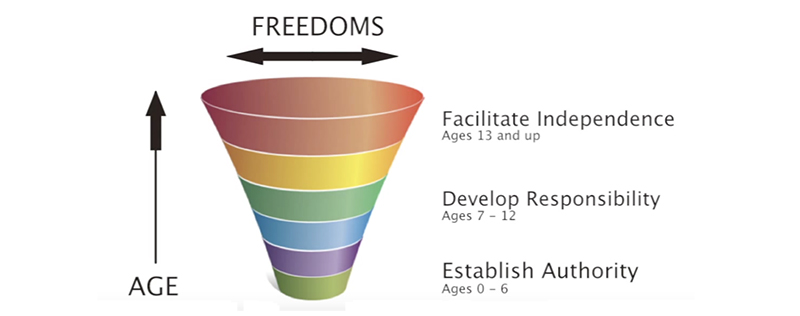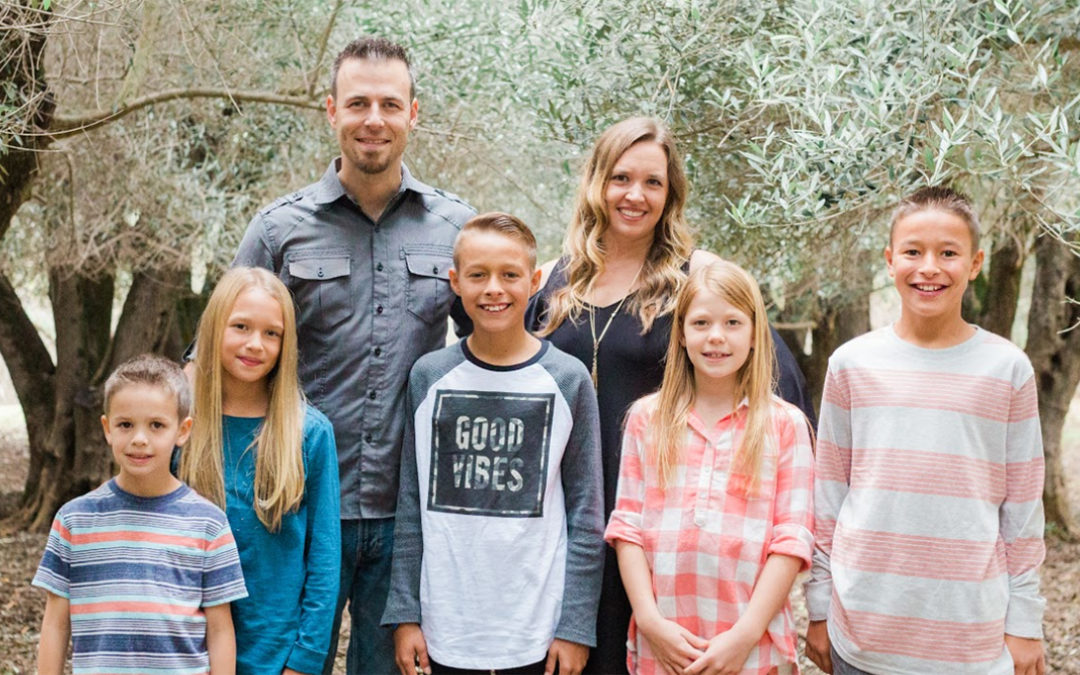One of the biggest challenges a parent faces these days is connecting to their children’s hearts, in spite of their eyes (and ours) continually drawn to tech devices.
Our attention spans are at a historical low, our senses are overstimulated with thousands of distractions per minute, and the speed of change has definitely outpaced most of our abilities — making us feel constantly behind or below par.
I don’t have this figured out at all and I probably struggle as much as others. However, there are some mindsets, tools, and strategies that have helped my wife and I tremendously over the years.
I worded these as commitments we make, but they are not necessary verbal commitments to a child, but personal commitments we make as parents in our own hearts:
1. I Will Help You Develop Your Circle of Influence
We often call this our 360 — the people that surround us as mentors and friends. Mandy and I know that as our kids get older, they begin to want to learn and model their lives more and more from those outside our inner family circle. It’s just reality. So we spend lots of time praying for their friends and for the right leaders to invest in their lives. Here are some practical ways to help shape their 360:
Encourage Mentorship
Encourage your kids to have a mentor by talking about it and modeling it. Doesn’t have to be an official mentor, just an older person they can talk to and learn from. It can be a church small group leader, a family-friend, even an aunt or uncle.
My oldest daughter Lily loves it when Joy, a worship leader in our church who’s in her 20s, takes her out to get bobas. Or when Lucille, one of my co-workers, shows up to her games to cheer for her.
Influence Their Friendships
If there are some friends you want your kids to get to know more, arrange for that to happen by inviting them to sports games with your family, birthday parties, or other fun activities. Don’t make it weird, just make it happen as naturally as possible.
2. I Will Include You in What I’m Doing and Learning
In America I think there’s too much “them” and “us” in parenting. It starts with food when they are young. Kids get the kids meals while parents get the “real” food. It’s not a huge deal, unless that mindset creeps in everything else we do, so that our lives are totally separate — I watch this, you watch that. I’ll volunteer here, you play the video games there, etc.
There’s something about cultures where families do things together. In our home we’ve tried to include our kids in as much as possible, as long as it didn’t interfere with the quality of our marriage. When we cook, we all eat the same food. When we serve, we try to serve together. When we build something, we can all participate.
Here are some other ideas:
- Go on prayer walks and invite your kids to join you.
- When you clean the house, make it a family project and make it fun.
- When possible, take your kids to work with you.
- Volunteer at church or community together.
3. I Will Prioritize Individual Time with You
Whether you have one child or five like me, it’s really important to prioritize one-on-one time with them. In my case, I have to be really intentional to not just “group parent” them, so I’ve developed a couple strategies for this:
- Take your kids on individual outings. I call it “dates” when taking the girls and “outings” when taking the boys. Camping, breakfast, dinners, field-trips, bike rides, etc.
- On school mornings, I invite one kid a day to wake up a little earlier and have breakfast with me. It’s only about 20 minutes, but they love the time. I make them a nice breakfast, I share a verse of Scripture with them, encourage them, and pray over them.
4. I Will Give You More Freedom as You Show More Responsibility
We call this “parenting through the funnel”. We only give more freedom as they show more responsibility. Doesn’t matter if all their friends have phones or can play five hours of video games a day, if they want those privileges, they must earn it. Here’s what the funnel approach looks like:

The younger generation is really struggling with entitlement — feeling like it’s their right to have anything they want. The only way to combat that is by developing a culture of gratitude in our homes. You show way more care and gratitude for a toy that you earned, than one that was given to you (especially when you thought it was your right to have it).
My love you get unconditionally, most other things you must earn. 🙂
Here are some examples of how to do this:
- Give your kids an opportunity to earn tech-time by serving.
- Give more choices and decision-making opportunities as they earn trust.
- Give more freedom of apps to use, screen-time, movies to watch, places to go, as they show maturity with the freedoms they currently have. It’s the funnel approach.

